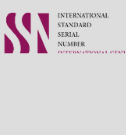3065-923X
Roles of Members
Editors and Editorial Board Members
The primary role of the Editors is to focus on the operational aspects of the journal.
Editor-in-Chief (EIC)
Job roles include:
- Set the journal's vision and direction
- Oversee the editorial process and make final publication decisions
- Manage the editorial board and recruit new editors
- Ensure the journal's content meets high standards of quality and integrity
Editor
Job roles include:
- Review and edit submissions for clarity, accuracy, and relevance
- Liaise with authors and reviewers throughout the publication process
- Ensure timely publication of each issue
- Develop and implement strategies to increase the journal's readership and impact
Managing Editor
Job roles include:
- Responsible for managing the day-to-day editorial tasks, reviewing manuscripts, coordinating peer reviews, making publication decisions, and ensuring the quality of content.
- Focus primarily on managing the peer review process, including recruiting reviewers and ensuring timely reviews.
Associate Editor
Job roles include:
- Assist other editors in managing the peer review process
- Invite and coordinate with peer reviewers
- Monitor the progress of reviews and make recommendations on manuscripts
- Announce final decisions on submissions
- Observe reviewers' comments and ensure they are addressed
Advisory /Editorial Board Members have a broader, more advisory role. Their job roles include:
- Provide strategic advice to the EIC on the journal's direction, policy, and scope.
- Help develop and refine the journal’s editorial guidelines and policies.
- Provide continuous feedback to improve the editorial processes and enhance the overall quality of the journal.
- Promote the journal within the scientific community and encourage submissions from high-quality researchers.
- Ensure adherence to ethical standards in publishing, such as preventing plagiarism and managing conflicts of interest.
- Ensure that the articles meet the journal's standards of quality, originality, and scientific rigor.
- Suggest new topics or special issues that could enhance the journal’s impact and relevance.
- Contribute to the journal by writing editorials, reviews, or opinion pieces.
- Stay updated on advancements in the field to ensure the journal remains at the forefront of research.
- Assist in resolving any disputes that arise during the review process.



